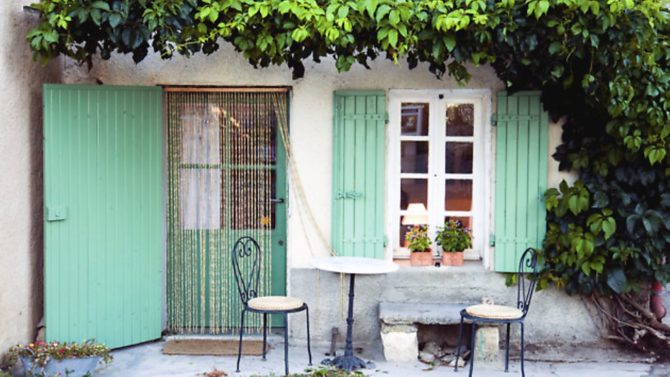How to set up a B&B or gîte in France

Setting up a B&B or gîte in France is a popular way for expats to earn a living. Kate McNally explains some of the things you need to think about to make your holiday accommodation a success

Location and buildings
So you’ve decided you’re going to set up a B&B or gîte. The next step is to make an objective assessment of your house, its design and situation. Look at how best to make use of the space to create guest rooms that bring you the maximum revenue while preserving the maximum privacy for everyone. Can you convert space into en-suite bath or shower rooms enabling you to set a higher tariff per room? Do you have any independent buildings that could offer a family-suite option or even be converted into a gîte?
Consider your location carefully. If you are off the beaten track, you won’t attract passing clients so you will need to market your business carefully to secure pre-bookings even if it is only for a night or two. For those really in the middle of nowhere, you are likely to operate more effectively as a gîte.
And what about the competition? It’s great to be located in or along a popular French tourist route, but if the area is already saturated with accommodation providers, there may not be enough business for everyone.

Finally, evaluate the parking space situation. If you have four or five rooms to rent, you need to have space for four or five cars, as well as your own.
Definitions and regulations
A chambres d’hôtes is a number of furnished bedrooms within the host’s house intended to welcome tourists for a night or more, including breakfast, whether simply passing through or pre-booked. A maximum of five rooms, accommodating no more than 15 guests, is permitted.
A table d’hôte is the same as a chambres d’hôtes, except that guests are invited to dine in the evening with the host. They must eat the same meal as the hosts and at the same table, otherwise the offer could be deemed a hotel and have far greater regulation. Usually, guests are looking for locally produced, home-cooked fare. If you plan to serve alcohol, you must seek a licence.
A gîte is a fully furnished independent holiday rental accommodation, nearly always booked in advance for a longer stay (usually for a minimum of one week in the high season).
‘Gîtes d’étape’ are designed to welcome larger groups, usually from 12 to 50 people, and are ideal for groups of walkers or cyclists, for example, following an itinerant route. It is considered a fifth category ERP (établissement recevant du public), and as such, requires approval from the security services.
‘Gîtes d’enfants’are designed to offer small groups of children, aged four to 15 years, the chance to spend a weekend or a week in the countryside to observe nature and discover the natural surroundings. They are regularly used by schools for classes découvertes and must be approved by the ministère de la Jeunesse et des sports.
It is obligatory for all owners of chambres d’hôtes or gîtes to register their activity at the local mairie. seek an appointment from the outset to ask for permission just in case there are any anomalies. Registration is simple, involving a short declaration of numbers of rooms, capacity and opening period.
Business status
If the annual revenues from your activity exceed €23,000 and account for more than 50% of your total household income, you will need to register as a location meublée professionnelle at the local chambre de commerce. Less than €23,000 or less than 50% of total household revenues, then you are considered a location meublée non-professionnelle and are not subject to business regulations and, more importantly, business tax.
Even if you are not registered as a business, however, you must declare earnings from the rental activity on your annual tax return.
Standing out from the crowd
This is a well-developed market and while there is no need for you to reinvent the wheel, you do need to put some time and effort into thinking about differentiating or specialising your offer.
Do you have a specific target market? Does your location in France attract a certain type of clientele – sporty, cultural, or perhaps large numbers of a particular foreign nationality for example – and can you tap into this? Think of the little extra things you can do or offer in situ that will make your hospitality stand out in a guest’s mind and thus encourage them to tell others about you. Don’t forget, word of mouth or as the French say ‘bouche à l’oreille’ is a highly effective promotional tool in the accommodation trade far and wide.
And finally, invest in a professional website, including an online reservation module, with links to useful, related websites. if you are selling a gîte holiday in particular, be sure to include photos and descriptions of the local area as well as your accommodation.
Read about expats running a hotel in DordogneRead about an expat running a gîte business on the Médoc coast
Share to: Facebook Twitter LinkedIn Email


